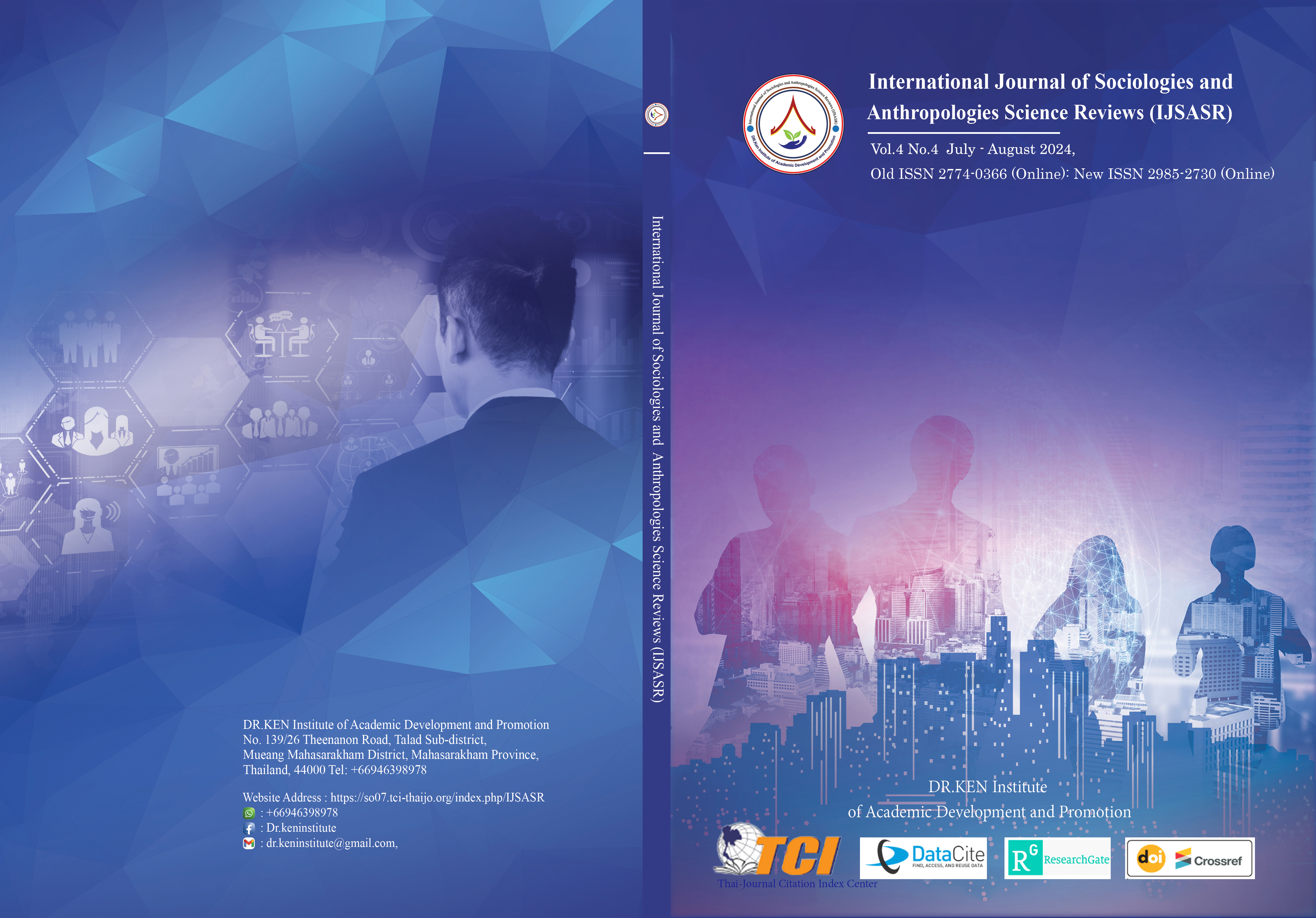Effect of Blended Learning with Micro-course on Mathematical Reasoning Ability of University Students
Main Article Content
Abstract
Background and Aims: With the rapid development of contemporary information technology, the online and offline blended learning model relies on information technology and mobile Internet to realize the organic combination of online and offline classroom teaching, creating a broader autonomous learning space for students. The purpose of this research is to evaluate the impact of blended learning with a micro course approach on students' mathematical reasoning abilities and satisfaction.
Methodology: This study sample selected were 30 freshmen students majoring in natural sciences at a university in Hainan which was derived from a single cluster random sampling method. The research tools are (1) Course lesson plan, (2) Mathematical reasoning ability test paper, and (3) Student satisfaction questionnaire. Conduct pre-test and post-test on the sample using mathematical reasoning ability test papers, and analyze the mean, standard deviation, and single sample t-test of the data using SPSS.
Result: After using the blended learning micro course teaching method, students' mathematical reasoning abilities were achieved by 77%, surpassing the predetermined criteria of 70%, and the difference is statistically significant at 0.05. Based on the scores from the statistical student satisfaction questionnaire, the overall results of the blended learning with micro course method by students are at a high level.
Conclusion: The study confirms that blended learning with micro-courses significantly enhances mathematical reasoning abilities and meets the individual learning needs of students majoring in natural sciences.
Article Details

This work is licensed under a Creative Commons Attribution-NonCommercial-NoDerivatives 4.0 International License.
Copyright on any article in the International Journal of Sociologies and Anthropologies Science Reviews is retained by the author(s) under the under the Creative Commons Attribution-NonCommercial-NoDerivatives 4.0 International License. Permission to use text, content, images, etc. of publication. Any user to read, download, copy, distribute, print, search, or link to the full texts of articles, crawl them for indexing, pass them as data to software, or use them for any other lawful purpose. But do not use it for commercial use or with the intent to benefit any business.

References
Cronbach, L.J. (1951). Coefficient alpha and the internal structure of tests. Psychometrika, 16, 297–334. https://doi.org/10.1007/BF02310555
He, K. (2014). From the essence of the "flipped classroom", we can see the future development of "flipped classroom" in China. Research on Audio-visual Education, 35 (7), 5-16. DOI:10.13811/j.cnki.eer. 2014.07.001.
Hu, T. (2011). "Micro-course": a new trend in the development of regional education information resources. Research on audio-visual Education, 10, 61-65.
Liao, X. (2014). Comparative discussion on micro-course teaching at home and abroad. Vocational and Technical Education, 32, 88-90. DOI:10.3969 /j.issn.1008-3219.2014.32.028.
Liu, G., & Zhang, H. (2018). New Achievements in the Construction of Education with Chinese Characteristics-Review and Foresight of the 12th Five-Year Plan of National Education Science. Educational Research, 39 (8), 28-35.
Pan, X. (2021). Application of Mixed Teaching Model based on Micro-Course in High School English Grammar Teaching. Heilongjiang: Harbin Normal University.
Richardson, M.W., & Kuder, G.F. (1939). The calculation of test reliability coefficients is based on the method of rational equivalence. Journal of Educational Psychology, 30(9), 681–687. https://doi.org/10.1037/h0054933
Valiathan, P. (2002). Blended learning models. Learning circuits, 3(8), 50-59
Wang, F. (2021). Teaching design and research based on "micro-course + SPOC" - -take the first volume of compulsory high school chemistry as an example. Ningxia: Ningxia University.
Wei, J., & Dong, J. (2023). Research on Teaching Strategies of Higher Mathematics in Undergraduate Colleges of Applied Technology. Research on Higher Mathematics, 26(3), 106-110. DOI:10.3969/j.issn.1008-1399.2023.03.033
Yang, J., Liu, Y., & Li, Q. (2023). The Construction and Application of Hybrid Teaching Mode from the Perspective of Dialogue Framework [J]. Journal of Higher Education Research, 46 (2), 62-69. DOI:10.3969/j.issn.1672-8874.2023.02.012.
Zhang, L. (2021). Research on the application of hybrid teaching mode based on SPOC in secondary vocational computer majors-Take the course "Foundation of Computer Application" as an example. Henan University of Science and Technology.
Zhu, X., Yu, X., Liu, Q., & He, Q. (2020). The application of micro-course in Chinese online teaching under the background of epidemic prevention and control. New Curriculum Research (early days), 2, 10-32.






